Qatar 2022: World Cup fall-out could tear football apart
- Published
- comments
Fifa's Jerome Valcke: "We are all making concessions to find the right time to play the 2022 World Cup"
Even by Fifa's standards, it was a performance of breathtaking audacity.
A day after world football's governing body confirmed it had caused an unprecedented upheaval to the sporting calendar, many may have expected its secretary-general to be in a conciliatory mood.
Not a bit of it.
As Jerome Valcke addressed journalists at a news conference in Doha, he was as bold and brash as the opulent, gilded furnishings at the five-star Doha Ritz-Carlton Hotel where he spoke.
With the top brass of the newly constituted Local Organising Committee sitting alongside him, and Qatar 2022's squadron of British public relations operatives nervously watching on, the Frenchman came out swinging.
Refusing to apologise for the disruption a winter 2022 World Cup in Qatar would cause, and defiantly dismissing the demand by Europe's top clubs for financial compensation, Valcke bristled and baulked at the suggestion that blowing a seven-week hole in domestic league calendars warranted some major concessions.
The clubs - he said - would again receive money from the World Cup as they did in 2010 and 2014, depending on how many days their players were on international duty. And that was all they would get.
In an under-statement of epic proportions, Valcke conceded that the situation "isn't perfect", before saying critics like the Premier League should just "enjoy yourselves in a different environment without screaming and saying 'it's impossible'".
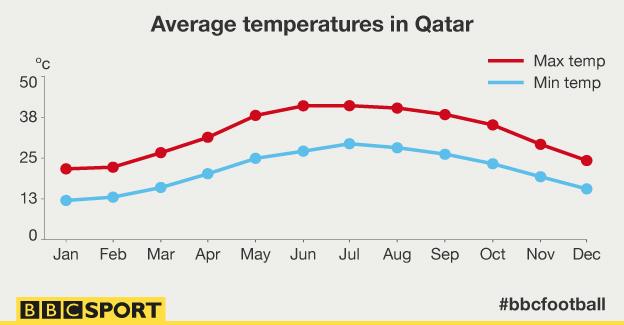
But as ever in the dubious and murky world of football politics, nothing is quite as it seems. Valcke was deliberately playing hardball, setting out Fifa's stall for the inevitable battles that lie ahead.
The European Club Association will be aiming for an especially generous agreement over the release of players for the next two World Cups, and the bargaining began in earnest on Wednesday.
But what would Richard Scudamore have thought, back in London after his briefest of stop-overs in Doha for Tuesday's meeting of the Qatar 2022 Fifa taskforce?
The Premier League supremo must have wondered why he had bothered.
The meeting - for which football executives had flown in for from all around the world on first-class flights - took all of an hour. There was no proper debate by all accounts. The recommendation of a switch to November/December was presented as a done deal.
Richard Scudamore: "It's the European leagues that are suffering the most"
Scudamore, the representative of the richest clubs in the world, and fresh from negotiating the biggest TV deal in football history, is not a man used to being messed around or having his time wasted.
And now - with British football's cherished festive fixture programme in jeopardy because of Uefa's support for Fifa's idea of a World Cup Final on 23 December (which will also make it difficult for fans who attend to get home for Christmas of course), he must work out what to do.
Fifa handing out money to the big clubs for the release of players at the World Cup is all well and good. But what about the smaller clubs who do not provide many international players? What do they get in return for having their seasons fractured? For the sudden break in their cash flow?
How much less will the broadcasters pay the League, now they have to account for a two-month break in the season?
In a statement, Scudamore said he was considering what "action" to take. Litigation is a possibility. But if not, there will still be a knock-on effect for other parties caught up in this.
The ins and outs of the first winter World Cup explained by BBC sports editor Dan Roan
The Premier League is furious with Fifa and will now want to alleviate the pressure on their disrupted calendar in 2022, as well as the season before and after the World Cup year.
The clubs will now consider various options - the scrapping of FA Cup replays, along with two-legged League Cup semi-finals.
More international friendlies are almost certain to be sacrificed, and European football's governing body Uefa could be asked to look at the format of the Champions League and Europa League to reduce the number of fixtures clubs are asked to play.
If you think clubs are reluctant to release players for friendlies and age-representative tournaments now, imagine their mood going forward.
Solutions like these may suit the richest, top clubs, emboldened by bumper TV deals, but what about clubs lower down the ladder, who desperately depend on FA Cup replays for essential income?
What about the Football Association, whose finances depend on as many international friendlies and fixtures at debt-laden Wembley as possible?
Will it really want the FA Cup's format to be meddled with in the 2022-23 season, when the 100th anniversary of the first FA Cup Final at Wembley is due to be celebrated? The ramifications of all this reach far and wide.
Possible 2022 timeline |
|---|
Early November: Premier League pauses |
26 November: World Cup starts |
Early December: Group stages finish, half the players return to clubs |
Through December: More players return home after knockout-stage exit |
Friday, 23 December: World Cup final |
Monday, 26 December: Premier League returns on Boxing Day? |
In short, expect the rifts and divisions that already blight football to be widened like never before, perhaps beyond repair, as the fall-out from Fifa's scandal-ridden and bungled bidding process continues.
The Premier League - and other factions in the sport - can now exploit this dispute to get what they want elsewhere.
Neville - Winter World Cup will help England
Many will find it hard to sympathise too much with the Premier League, awash with £5bn of TV revenue.
After all, with more and more foreign talent coming into the clubs, players disappearing in the middle of the season is hardly a new phenomenon; take the recent Africa Cup of Nations and Asian Cup for instance. Leagues elsewhere in Europe handle winter breaks just fine.
In fact, as former England international Phil Neville said on Tuesday, it may just be a blessing in disguise for the England team, who for once may not turn up for a major tournament on their last legs.
And some will accuse Scudamore of hypocrisy, complaining of a threat to the Premier League's "integrity" when a few years ago it was he who came up with the idea for a '39th game'.
Europe's top clubs of course seem more than happy to accept investment and sponsorship from the Middle East.
They are happy to go there on pre-season tours. So why then should they not be flexible in order to take the game's showpiece event to a new part of the world. A place where it can be a unifying force?
Certainly, when compared with the continuing poor treatment of many migrant workers on construction sites in Qatar, the clubs' dismay at the inconvenience of a mid-season break seems somewhat mis-placed.
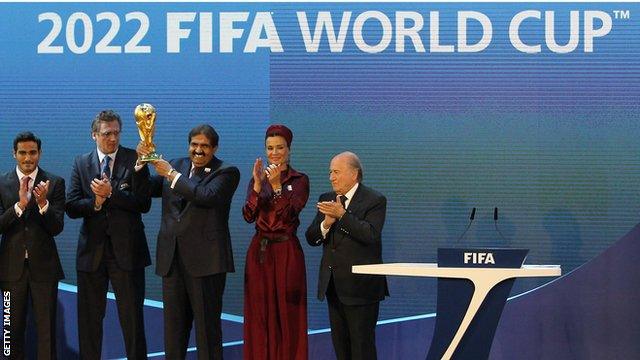
The proposed World Cup final date for the 2022 tournament in Qatar is 23 December
For many critics, Fifa arrogance's appeared to reach new heights here in Doha.
The 'taskforce', conveniently portrayed as a democratic means of giving different parties in the game a voice, seemed like a stitch-up, with the November/December solution decided upon months ago.
They will point to Valcke's claim that "we did what we had to do" over the recent decision to suddenly award US TV giant Fox the rights to the 2026 World Cup (especially valuable as it will probably be staged in the United States), as a tacit admission that is was designed to placate the network.
Another example of an organisation making it up as it goes along. (Fox was known to be unhappy that its rights to what it thought was a summer World Cup had suddenly become a winter one.)
It does not seem to matter to Fifa that rival networks ESPN and NBC may have wanted to bid, or that more money could have been generated for the good of the sport had a proper auction been held. As ever, it seemed, Fifa was looking after itself.
The governing body has now completed football's ultimate U-turn and yet again shifted the goalposts to get itself out of a deep, dark hole.
Qatar - who were ready to host the tournament whenever - should not shoulder the blame for that, despite the allegations of corruption that have dogged it. In fact, compared to the 2018 World Cup hosts Russia - increasingly isolated as a result of the crisis in Ukraine - Qatar 2022 may turn out to be a walk in the park for Fifa. Having spent the last few days here, in the pleasant winter warmth, amid Doha's pristine avenues and resplendent skyscrapers, it is impossible not to be struck by the sheer wealth and rapid growth of this country.
Yes, it can feel soulless to Westerners. A playground of the rich. And no, it does not have a footballing culture. But this region is becoming the world's sporting hub, with more and more events taking place here. Why not football's marquee competition?
Many would have welcomed Qatar's chance to host the World Cup - had it bid for a winter tournament. But it did not.
Many would have accepted Fifa voting for Qatar had it done so for honourable reasons rather than greed. But it did not.
Many would have congratulated Qatar had its bid not been blighted by accusations of foul play. But it was.
And now, four years on from the decision that shocked the world, many elements in the sport will bear the brunt.
- Published24 February 2015
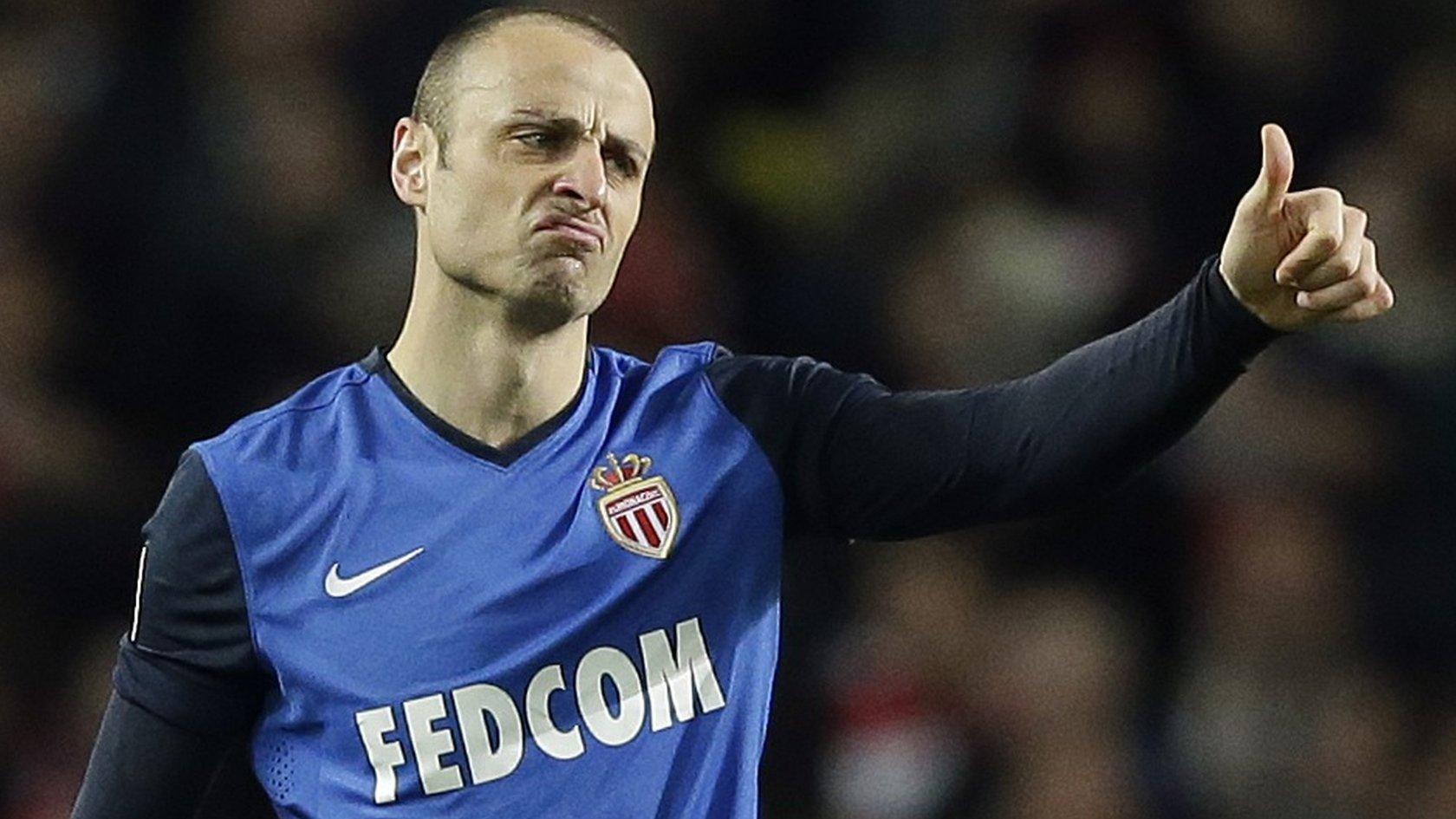
- Published24 February 2015
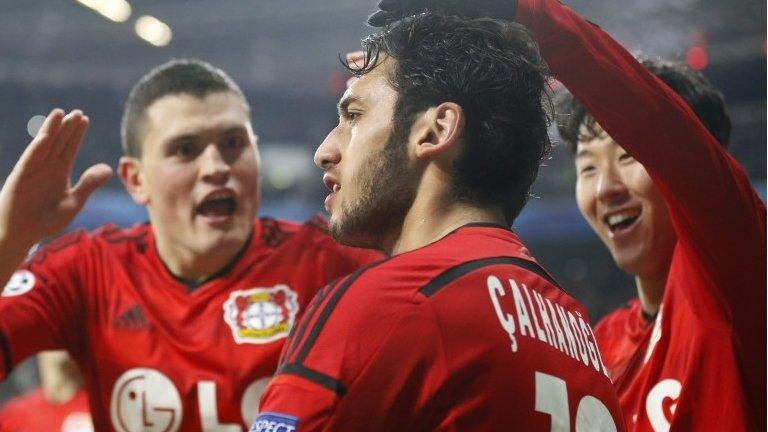
- Published25 February 2015
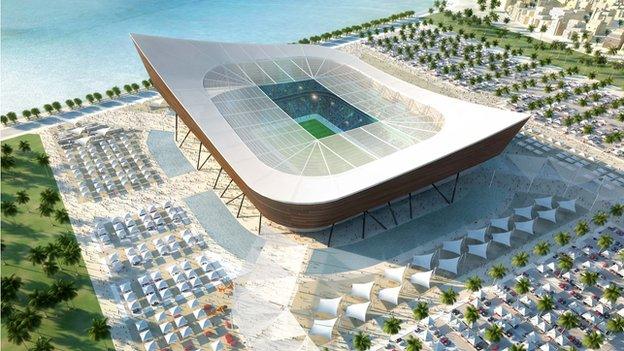
- Published24 February 2015
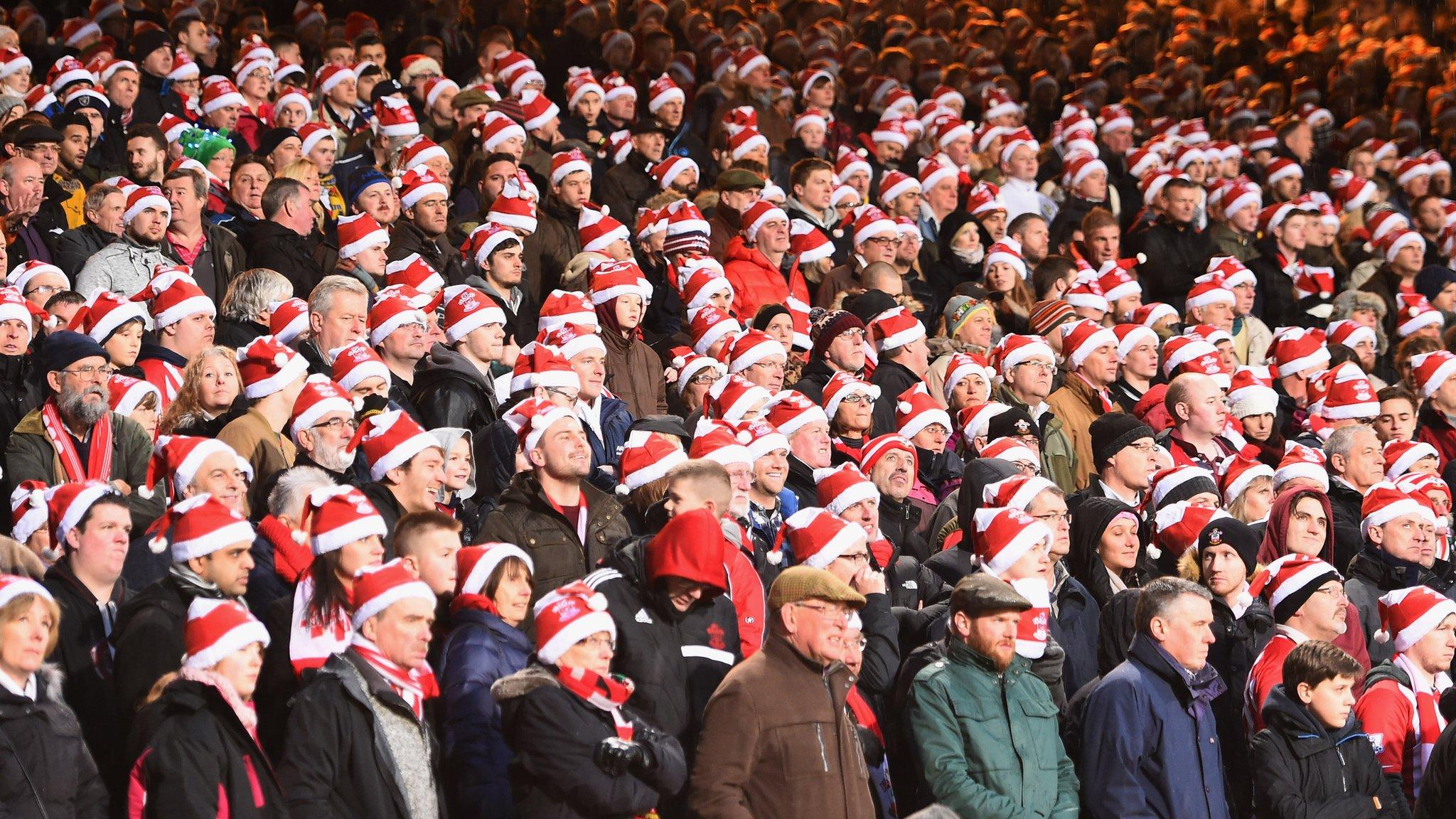
- Published24 February 2015
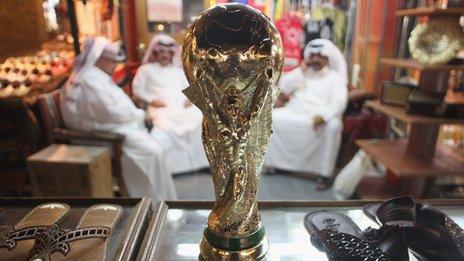
- Published25 February 2015